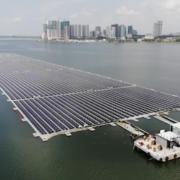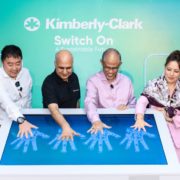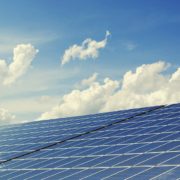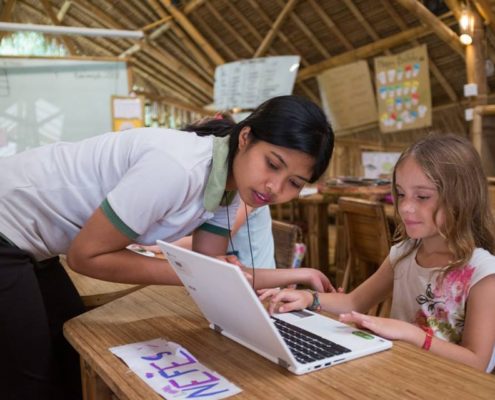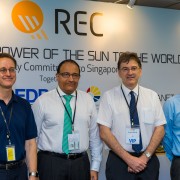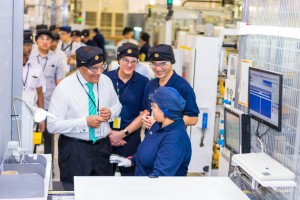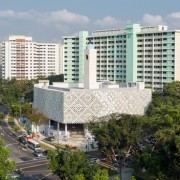Sunseap Completes One of World’s Largest Offshore Floating Solar Farms in Johor Straits
Sunseap Group, Singapore’s leading solar energy provider, announced that it has completed the installation of one of the world’s largest floating solar farms on sea water in the Straits of Johor. It is hoped that the successful building of the five MW-peak offshore floating photovoltaic (OFPV) system will lead to more OFPV projects in the region as land-scarce countries tap offshore solar as part of their renewables strategy.
Sunseap said the floating solar farm at Woodlands took close to a year to set up amid movement restrictions during the Covid-19 lockdown. It involved a total of 13,312 panels, 40 inverters and more than 30,000 floats. The installation is expected to produce an estimated 6,022,500 kilo-watt hours (kWh) of energy per year, potentially offsetting an estimated 4,258 tonnes of carbon dioxide, bringing Singapore closer to decarbonisation.
The solar farm is equipped with electrical panels, control systems and a 22kV transformer. It is also a landing point for the subsea cable that transmits the generated power to the national grid. The floating PV system is designed with a robust constant tension mooring system that is able to withstand changing weather conditions, keeping the platform and all of the operational equipment on board steady. There is also an air-conditioned second deck that doubles-up as a visitor centre and viewing gallery.
Mr Frank Phuan, co-founder and CEO of Sunseap Group, said: “We are very pleased to announce the successful completion of Singapore and Sunseap’s first offshore floating photovoltaic system.
“This is an important milestone for Sunseap as we believe that offshore space like the sea, reservoirs, lakes etc., offers exciting opportunities for land-scarce and densely populated cities to tap solar energy. They are places that are unobscured from the sun and with low risks of vandalism or theft.
“We believe that we at Sunseap have honed our experience and expertise in offshore floating PV systems from the completion of this project and are well placed to help our clients access this new frontier for solar energy.”
Sunseap said the Woodlands project was more challenging compared to other land-based or rooftop installations due to the unpredictable nature of open sea, the need to avoid shipping routes and the presence of barnacles. Marine expertise was also required for mooring installation and system design.
Furthermore, the Covid-19 lockdown last year posed an additional challenge as foreign workers hired by Sunseap’s contractor were unable to leave their dormitories. Mr Phuan said: “I am so thankful to many members of our team who rolled up their sleeves to fill in the gap during this period. Their professionalism and esprit de corps were key to the successful completion of the project in the face of the numerous challenges.”

